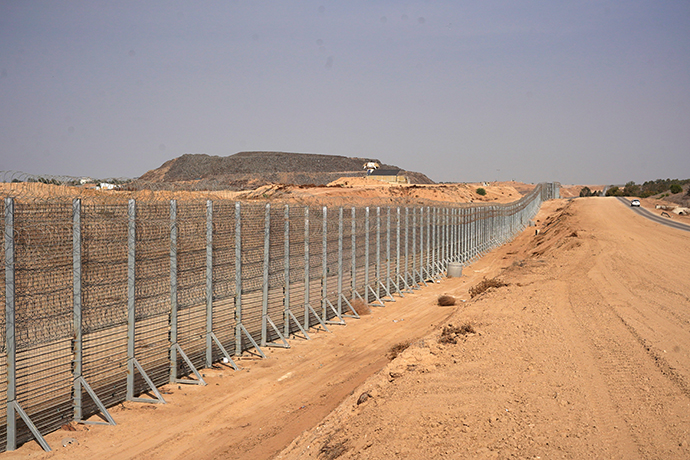The Paper's reporter Nan Boyi

On December 7, 2021 local time, the Israeli Ministry of Defense announced that after more than three years of construction, the construction of the "smart" separation wall along the Palestinian Gaza Strip was completed. People's Vision Diagram
On December 7, local time, the Israeli Ministry of Defense announced that the construction of the "smart" separation wall along the Palestinian Gaza Strip, which lasted about 3 and a half years, had been completed.
According to the Associated Press reported on December 8, Israeli Defense Secretary Gantz said in a statement on the 7th that the wall is an "innovative high-tech project" that can provide a sense of security for residents in the south of the country while benefiting the development of the region.
In 2019, the Israeli Ministry of Defense announced the construction of a separation wall on Israel's border with the Gaza Strip aimed at preventing Palestinians from crossing the border into Israel. The 65-kilometre-long wall is divided into two parts, above and below ground, along which hundreds of smart devices such as cameras, radar systems and sensing devices have been installed. At the same time, the wall extends to the sea and is equipped with systems for detecting cross-border personnel at sea and weapons systems that can be controlled remotely.
The Gaza Strip, located between Israel and Egypt, is a transportation fortress facing the Mediterranean Sea. In 2007, the Palestinian Islamic Resistance Movement (Hamas) seized de facto control of the Gaza Strip, and Israel subsequently began imposing a total blockade on the strip, strictly controlling the movement of people and goods. Since then, the economic situation and social livelihood in the Gaza Strip have deteriorated as a result of the long-term blockade, and southern Israel has been often subjected to air strikes by armed forces in the Gaza Strip. In May, clashes broke out again, lasting 11 days and killing more than 240 people in the bombing. On May 21, the two sides reached a ceasefire agreement to end the conflict. The Israeli Prime Minister's Office said the Israeli security cabinet had unanimously agreed to accept a ceasefire brokered by Egypt. Hamas spokesman Hazim Kassem revealed that news of a ceasefire between Hamas and Israel is true.
Responsible editor: Zhu Runyu Photo editor: Shen Ke
Proofreader: Ding Xiao